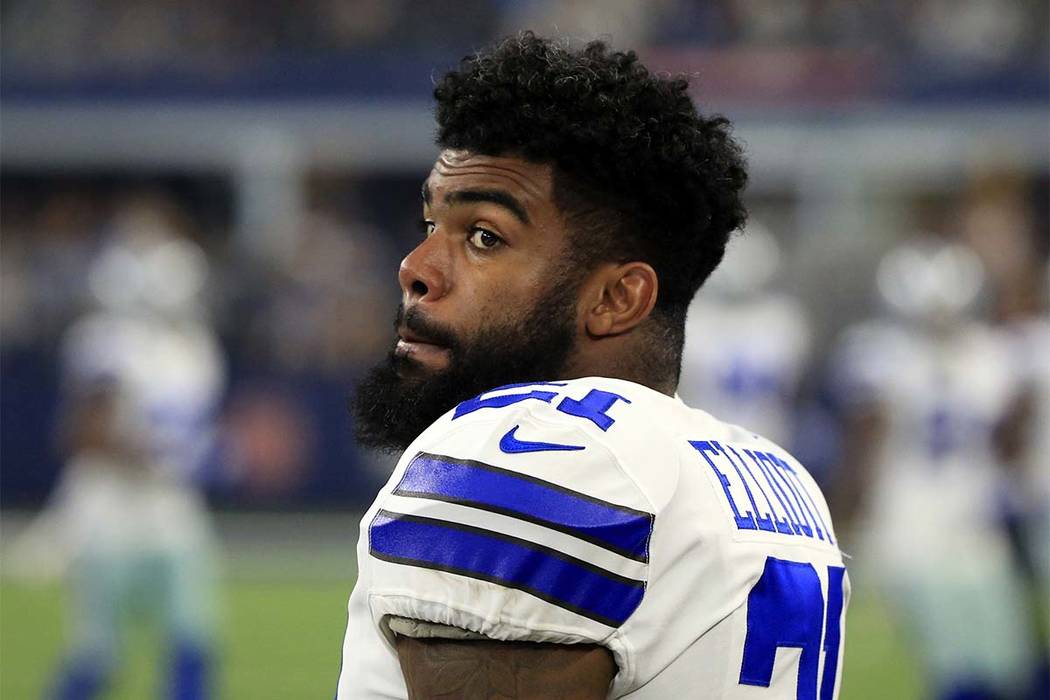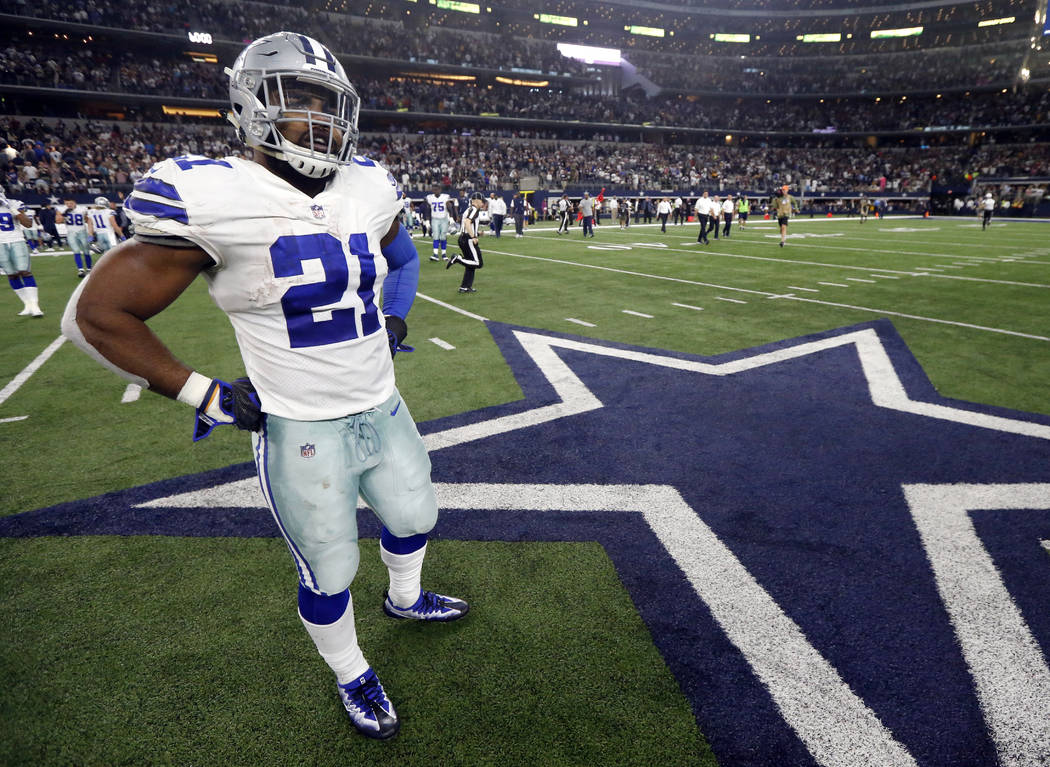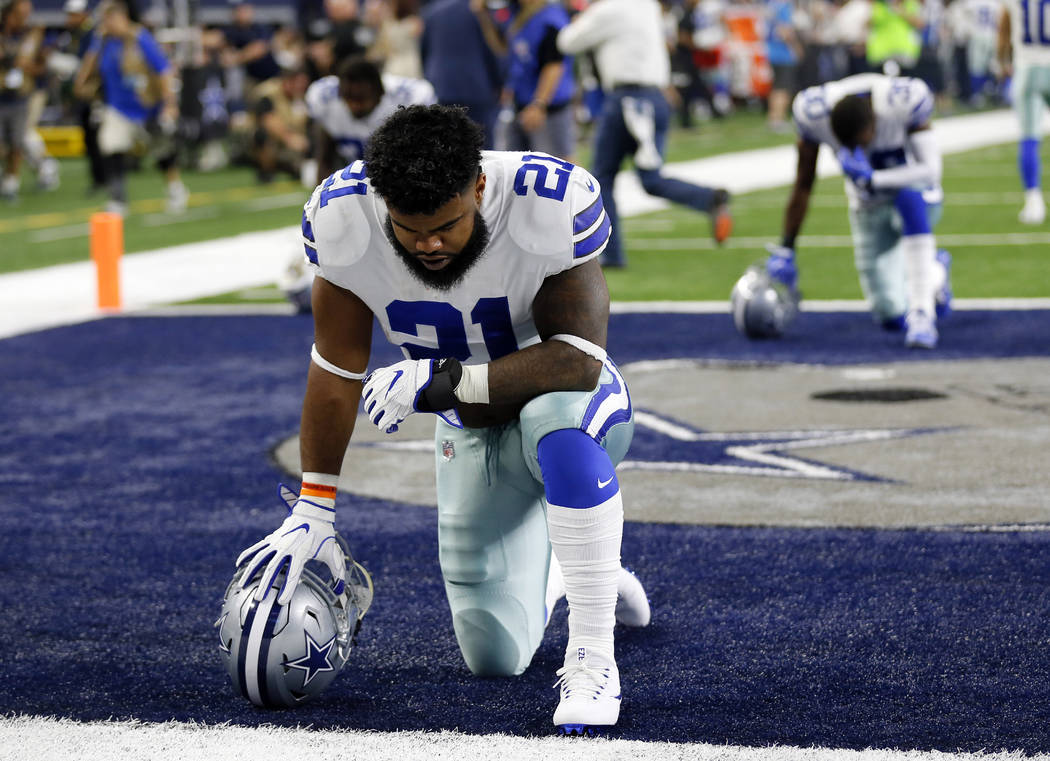Cowboys’ Ezekiel Elliott faces suspension again after court ruling
FRISCO, Texas — A federal appeals court cleared the way Thursday for the NFL to impose a six-game suspension on Dallas Cowboys star Ezekiel Elliott over domestic violence allegations, siding with the league in the latest high-profile fight over its ability to punish players for off-field behavior.
In a 2-1 decision, the 5th U.S. Circuit Court of Appeals panel in New Orleans granted the league’s emergency request to set aside an injunction and ordered a district court in Texas to dismiss Elliott’s case.
The NFL announced that the suspension was effective immediately, though further appeals were possible and the Cowboys are not playing this weekend.
“We are currently exploring all of our legal options and will make a decision as to what is the best course of action in the next few days,” Elliott attorney Frank Salzano said.
The Cowboys don’t play again until next Sunday, Oct. 22, at San Francisco. If Elliott’s legal team can’t put the suspension on hold again, he won’t be eligible to play until Nov. 30 at home against Washington, a Thursday night game the week after Thanksgiving. Elliott played the first five games as Dallas went 2-3 in a disappointing start.
A federal judge in Texas issued the injunction blocking the suspension last month, agreeing with NFL players’ union attorneys who argued that the investigation of the allegations in Ohio and a subsequent appeal were unfair to Elliott, one of the league’s standout running backs.
The NFL countered that it followed procedures under the league’s labor deal and that the union improperly filed a lawsuit before the appeals process was complete.
“The NFLPA is reviewing the decision and considering all options,” the players’ union said in a statement Thursday. “The appellate court decision focuses on the jurisdictional issues. The failures of due process by the NFL articulated in the District Court’s decision were not addressed.”
The most likely destination for further legal challenges from players’ union attorneys representing Elliott is with the Southern District of New York. The NFL filed in that federal court after Elliott’s appeal through the league was denied by arbitrator Harold Henderson last month.
Last year’s NFL rushing leader as a rookie, Elliott was suspended in August by Commissioner Roger Goodell after the league concluded following a yearlong investigation that he had several physical confrontations in the summer of 2016 with Tiffany Thompson, his girlfriend at the time.
Prosecutors in Columbus, Ohio, decided not to pursue the case in the city where Elliott starred for Ohio State, citing conflicting evidence.
Elliott’s legal team filed the lawsuit on his behalf in the Eastern District of Texas before Henderson had rejected the appeal. The 5th Circuit agreed with the NFL’s claim that the filing was premature.
“The procedures provided for in the collective bargaining agreement between the NFL and NFLPA were not exhausted,” Judges Jennifer Elrod and Edward Prado wrote for the majority. “The parties contracted to have an arbitrator make a final decision. That decision had not yet been issued.”
In dissent, Judge James Graves disagreed that the suit was filed prematurely. Graves noted the union’s argument that the league had violated the collective bargaining agreement because key information had been withheld from Goodell and Elliott’s representatives before the suspension was ordered and the arbitrator’s decision was based on incomplete information. The suit was properly filed in the district court because the arbitration process called for in the labor deal was not properly followed, Graves argued.
The NFL had already agreed to let Elliott play in the opener before his request for an injunction was granted by U.S. District Judge Amos Mazzant in Sherman, north of Dallas. Henderson ruled against Elliott the same day Mazzant heard arguments over the injunction.
Gabe Feldman, director of the sports law program at Tulane University Law School, noted that the opinion dealt only with jurisdictional issues and not the question of whether the NFL’s appeals process was unfair to Elliott.
“This is certainly a significant setback,” Feldman said. “But they still have a chance because this decision was not made on the merits of the case. He has yet to have a federal court rule against him on the merits. Until that happens, he still has a chance.”
Elliott, who set a Dallas rookie franchise record with 1,631 yards rushing last season, is fourth in the NFL with 393 yards this year. He had a season-high 116 yards in a 35-31 loss to Green Bay on Sunday.
If the case shifts to federal court in New York, home to league headquarters and the site of Elliott’s appeal hearing with Henderson, the venue is a familiar one. The NFL won the “Deflategate” decision in the New York court, leading to New England quarterback Tom Brady serving his four-game suspension a year after it was originally imposed. A federal judge had put Brady’s suspension on hold.
























